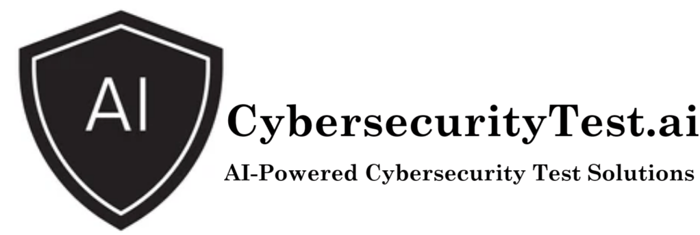Enhancing Security with AI-Powered Cybersecurity Test Solutions
Discover how ai-powered cybersecurity testing solutions can protect your business from threats. Our platform offers real-time detection, vulnerability scanning, and automated penetration testing, ensuring comprehensive security for IoT devices. Scalable for all business sizes, we provide seamless integration and detailed reporting for optimal protection against cyber risks.
5/8/20245 min read


In today’s digital world, businesses of all sizes are increasingly vulnerable to cyber threats, especially with the rapid adoption of IoT (Internet of Things) devices. IoT devices, including security cameras, sensors, and other smart technologies, provide immense value by streamlining operations and improving efficiency. However, they also present new attack surfaces for hackers. Traditional security measures are no longer sufficient to tackle sophisticated attacks, making AI-powered cybersecurity testing solutions critical for comprehensive business protection.
This article explores how AI-driven cybersecurity solutions, particularly for IoT environments, can shield your business from cyber risks through real-time detection, vulnerability scanning, and automated penetration testing. Additionally, we will highlight how these solutions scale effortlessly, offering protection tailored to businesses of any size.
The Evolving Cybersecurity Landscape
As more devices connect to the internet, the number of potential entry points for cybercriminals increases dramatically. In the past, security strategies were primarily focused on securing internal networks and endpoints such as computers and servers. But now, with IoT devices playing an essential role in industries from healthcare to manufacturing, the cybersecurity landscape has changed significantly.
One of the most glaring vulnerabilities in IoT systems lies in the lack of uniform security protocols. IoT devices often use default passwords, outdated firmware, and unencrypted communication channels, making them easy targets for attackers. Given the enormous amount of sensitive data that IoT devices can generate, a breach in even one device can have significant repercussions for a business. That’s where AI-powered cybersecurity testing solutions come into play.
AI-Powered Real-Time Threat Detection
Real-time threat detection is crucial for businesses that rely on IoT systems to operate smoothly. AI-driven systems offer a significant advantage in this area by continuously monitoring network activity, identifying anomalies, and flagging potential security breaches before they can escalate. With the capacity to analyze vast amounts of data in real time, AI can identify malicious patterns far quicker than traditional rule-based systems.
A major challenge in IoT cybersecurity is the sheer volume of traffic that devices generate. Manual threat detection is nearly impossible when there are hundreds or even thousands of devices within a network. AI-powered solutions employ machine learning algorithms that are capable of discerning patterns in the data, detecting irregular behavior that may indicate a security issue. Whether it’s a potential data breach, unauthorized access, or malware infiltration, the system alerts network administrators so they can take immediate action.
Real-time detection is particularly valuable because it minimizes the time between identifying a threat and mitigating it. For instance, if a hacker attempts to exploit a vulnerability in a connected CCTV camera, AI-based solutions can detect the abnormal behavior instantly and send an alert. Early detection prevents the attacker from gaining further access to the network, significantly reducing the risk of data loss or operational disruption.
Vulnerability Scanning with AI
Regular vulnerability scanning is a critical component of any cybersecurity strategy, and AI-powered platforms take this process to the next level. Vulnerability scanning refers to the process of identifying weaknesses in your network infrastructure, software, and connected devices, which could potentially be exploited by hackers.
Traditional vulnerability scanning tools have limitations. They often require manual updates to keep up with new threats and rely heavily on predefined rules and known vulnerabilities. In contrast, AI-driven solutions are constantly learning from new data, allowing them to detect unknown or emerging vulnerabilities (commonly referred to as "zero-day threats"). This capability is particularly important in IoT networks, where new devices are continually introduced, and threats evolve rapidly.
An AI-powered vulnerability scanner can scan every device on the network, checking for issues such as outdated firmware, weak passwords, unsecured ports, or unpatched software. Because AI tools are more dynamic, they can detect potential issues that traditional scanners might miss. Furthermore, AI systems can prioritize vulnerabilities based on their potential impact, allowing businesses to focus on addressing the most critical threats first.
In addition to finding vulnerabilities, AI systems can also recommend fixes. For example, if an IoT device is found to be running an outdated version of its firmware, the system can automatically suggest or even initiate an update, ensuring that security patches are applied promptly.
Automated Penetration Testing for Comprehensive Security
Penetration testing, also known as ethical hacking, involves simulating cyberattacks on your network to uncover vulnerabilities before malicious actors can exploit them. While manual penetration testing is an effective strategy, it’s time-consuming, costly, and often impractical to perform continuously. Automated penetration testing tools powered by AI solve these challenges by providing continuous, scalable testing without the need for human intervention.
AI-driven penetration testing solutions can simulate a wide range of attack scenarios, including brute force attacks, SQL injections, and man-in-the-middle attacks. Once vulnerabilities are identified, the system provides detailed reports on the potential damage these threats could cause, along with recommendations for mitigating them. Unlike manual testing, which can take days or even weeks, AI-based penetration testing can be run frequently and on demand, giving businesses a real-time understanding of their security posture.
Another key advantage of AI-powered penetration testing is its ability to adapt. Traditional systems rely on pre-configured attack patterns, which means they may miss new and innovative attack techniques. In contrast, AI continuously learns from new data, making it better suited to detect and defend against emerging threats.
Scalable Solutions for Businesses of All Sizes
One of the most significant advantages of AI-powered cybersecurity solutions is their scalability. Whether you’re a small business with a handful of IoT devices or a large enterprise managing thousands of connected systems, AI-powered solutions can easily scale to meet your needs. The cloud-based nature of many AI security platforms allows businesses to expand their cybersecurity coverage without investing in additional hardware or resources.
For smaller businesses, this means accessing advanced cybersecurity capabilities that were previously only available to large enterprises. With features like real-time monitoring, automated scanning, and penetration testing, even businesses with limited IT resources can protect themselves against cyber threats. For larger organizations, AI-driven systems can handle the massive volumes of data generated by IoT devices, ensuring that no threat goes undetected.
Detailed Reporting and Actionable Insights
Detailed reporting is an essential feature of AI-powered cybersecurity solutions. After conducting vulnerability scans, penetration tests, or detecting potential threats, the system generates comprehensive reports. These reports provide actionable insights, helping businesses understand their security risks and how to address them effectively.
AI-based platforms offer customizable reports, allowing businesses to tailor them according to their needs. For example, an organization may choose to receive high-level reports for executives that summarize key risks and mitigation strategies, while more detailed technical reports can be provided to IT staff for immediate action.
Moreover, AI-based reporting tools allow businesses to track their progress over time. By comparing reports generated over weeks or months, businesses can see how their security posture is improving and where additional efforts are needed.
Conclusion
In a world where cyber threats are becoming increasingly sophisticated, AI-powered cybersecurity testing solutions are no longer a luxury—they’re a necessity. By offering real-time detection, vulnerability scanning, and automated penetration testing, these solutions provide businesses of all sizes with the tools they need to protect their networks, particularly in IoT environments.
From small businesses with a handful of devices to large enterprises with complex networks, AI-powered platforms scale to meet your needs, ensuring comprehensive protection across all environments. With AI continuously learning and evolving, businesses can stay one step ahead of cybercriminals, safeguarding their data, devices, and operations against an ever-growing list of threats.
Investing in an AI-powered cybersecurity solution ensures your business remains resilient, secure, and ready to face the future of cybersecurity challenges.
Security
AI-driven solutions for comprehensive cybersecurity protection.
Protection
Innovation
howard@CybersecurityTest.ai
© 2024. All rights reserved.
